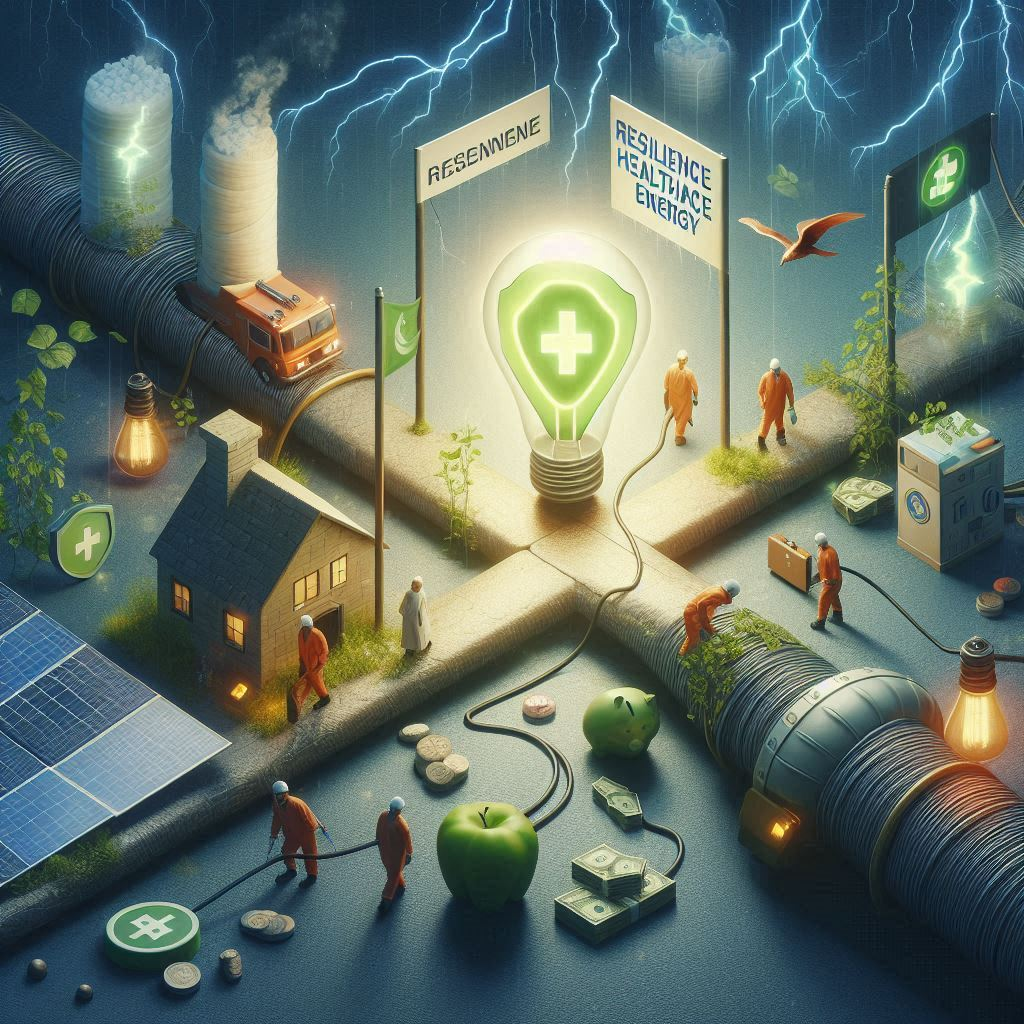A new study by UNICEF, reveals that developing resilient energy systems to power health facilities in Pakistan could save over 175,000 lives by 2030.
A new study by the United Nations children’s agency, UNICEF, reveals that developing resilient energy systems to power health facilities in Pakistan could save over 175,000 lives by 2030. The study emphasizes that enhancing energy resilience would not only save lives but also contribute $296 million to Pakistan’s fragile economy over the next two decades by reducing maternal, adult, and infant mortality.
The report, conducted by UNICEF’s Economist Impact Unit and released on Friday, comes amid an intense heat wave gripping Pakistan, which has exacerbated health issues and further strained the country’s healthcare infrastructure. On Friday, temperatures soared as high as 49 degrees Celsius (120 degrees Fahrenheit) in various parts of the country.
Authorities have urged people to stay indoors, remain hydrated, and avoid unnecessary travel. The soaring temperatures have led to a surge in power demand, further stressing the existing electricity supply.
UNICEF describes resilient energy as reliable, flexible, accessible, and high-quality power supplies that can withstand and quickly recover from unexpected shocks, such as power outages and floods. The agency highlighted that more resilient energy supplies for schools would reduce dropout rates and improve learning outcomes, enabling children to achieve higher future earnings.
“Children depend on schools, health centers, and safe drinking water for their survival, yet these facilities often lack the electricity supply needed to function optimally. As the current heat wave grips the country, electricity needs have skyrocketed, leading to shortfalls that can endanger children’s health,” said Abdullah Fadil, the UNICEF representative in Pakistan.
The study points out that 3.5 billion people globally live without reliable power. In Pakistan, climate change significantly disrupts the generation and distribution of energy. The 2022 monsoon rains, intensified by climate change, triggered devastating floods that killed 1,739 people and damaged almost half of the country’s water infrastructure, including storage tanks, wells, and supply lines.
Adding to the climate challenges, Pakistan experienced its wettest April since 1961, with more than double the usual rainfall for the month. The heavy rains last month resulted in the loss of lives and extensive damage to property and farmland. May daytime temperatures have soared up to 8 degrees Celsius (14 degrees Fahrenheit) above average for the month over the past two decades, raising concerns about potential flooding in the northwest due to glacial melting.
In response to the 2022 floods, UNICEF helped restore water systems for 350,000 people across 375 locations and has implemented several solar electrification initiatives in Pakistan.
“Pakistan has an abundance of renewable resources, and by investing in them, we are tapping into a gold mine to help children,” Fadil said. “We need the private sector to play a bigger role as public sector resources will not be enough. This is everybody’s business.”
The findings underscore the critical need for resilient energy systems in Pakistan, particularly as the country faces escalating climate challenges. Investing in renewable energy resources not only promises economic benefits but also ensures the health and well-being of its population, particularly the most vulnerable children.
Looking Ahead
UNICEF’s call to action highlights the urgency for a collaborative approach involving both public and private sectors to invest in resilient energy infrastructure. As Pakistan navigates the dual challenges of climate change and energy shortages, such investments are crucial to safeguard its future and ensure the health and prosperity of its citizens. The study’s insights are a clarion call to prioritize sustainable energy solutions to create a more resilient and healthier Pakistan.
